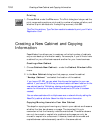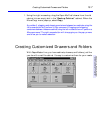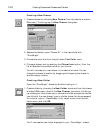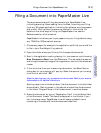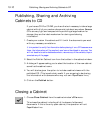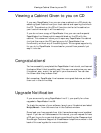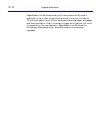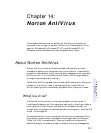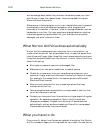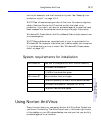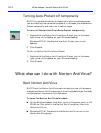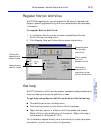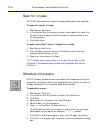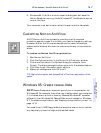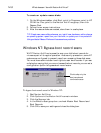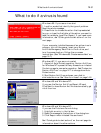
14-2 About Norton AntiVirus
well as damage data, delete files, and even completely erase your hard
disk. Macro viruses, the newest threat, infect and spread throughout
Word and Excel documents.
Whenever an infected program is run or an infected document is opened,
the attached virus is activated and spreads to other programs and
documents. Viruses don’t, however, infect or damage hardware, such as
keyboards or monitors. You may experience strange behaviors (such as
characters appearing upside down) but your disks are not physically
damaged, just what’s stored on them.
What Norton AntiVirus does automatically
Norton AntiVirus safeguards your computer from virus infection, no
matter what the source. You are protected from viruses that spread from
hard drives and floppy disks, those that travel across networks, and even
those that are downloaded from the Internet. In short, Norton AntiVirus
does the following:
■ Eliminates viruses and repairs virus-damaged files.
■ Makes sure your computer is safe from viruses at startup.
■ Checks for viruses every time you use software programs on your
computer, floppy disks, and document files that you receive or create.
(For example, the newest kind of viruses are spread via Microsoft
Word and Excel macros.)
■ Monitors your computer for any unusual symptoms that may
indicate an active virus.
■ Runs a scheduled scan automatically once per week to confirm that
your hard disks are virus-free.
■ Protects your computer from Internet-borne viruses as part of regular
operation. No separate programs or Norton AntiVirus options
changes are necessary. Program and document files are scanned
automatically as they are downloaded and files within compressed
files are scanned when they are extracted.
What you have to do
Once a month, obtain from Symantec updated information that Norton
AntiVirus needs to keep your virus protection up-to-date. You can do this



